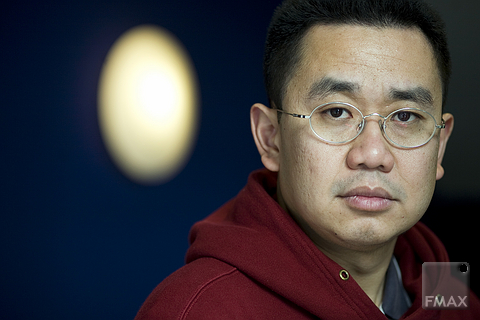The entrepreneur as a lonesome hero who accomplishes everything by himself is an image from the past. The modern entrepreneur operates within a social network. But what kind of network? PhD student Danny Soetanto attempted to find out.
So, you’re a young engineer with a brilliant idea, but no social network to speak of? Don’t worry, in the initial phase of a start-up company, networks aren’t essential to success. But you better start planning how to acquire a network to really launch once your technology is ready. That’s not a hunch. That’s science.
In a survey of hundred spin-off companies from universities in Delft and Trondheim (Norway), PhD student Danny Soetanto, who will defend his thesis on October 29, mapped the importance of social networks for the success – measured in terms of growth – of a company. “What I did is approach these companies with a set of questions,” he explains. “If you have a specific problem, who do you go to? How often do you see your contacts, where are they located, and for how long have you known them? This gave me a profile of the company’s social network, which I combined with the company’s characteristics.”
It appeared the companies fell into four categories. There is a clear distinction between Dutch and Norwegian start-ups, and between those which are older and younger than four years. “In Trondheim, funding is the biggest problem start-ups face,” Soetanto says. “This is because they feel they need venture capital and there is an obligation to form a board of directors from outside the company. Delft start-ups usually fund themselves, independence being an important motivation for the entrepreneurs. Here marketing is regarded as the biggest obstacle.”
All categories have something in common as well, though. The more heterogenous the social network surrounding a company, the more successful it is. However, if contacts with partners in universities and industry are too intimate, this usually has a negative impact on success. This, theory proposes, is because if you’re too much part of established networks, your mindset will be narrowed, thus holding back your creativity and impulses to innovate.
What, then, should start-ups do to acquire just the right network? There is no sure-fire solution, Soetanto says: “It depends very much on which type of company you are. In fact, even my presumption that growth is a measure of success is debatable. Some companies simply don’t want to grow. I also interviewed the entrepreneur of an ICT start-up that quickly grew to fourthy employees, only to have them forcibly laid off when economic prospects diminished.’
For the Delft situation, Soetanto, who is originally from Indonesia and will soon be leaving to take up a postdoc position at Lancaster University (UK), adds that his interviews were conducted several years ago. Since then, however, YES!Delft has really taken off as an incubator for university start-ups, while removing even more obstacles on the road to success by offering not only accomodation but also knowledge and networks. The Norwegian experience, it should be noted, shows that even if there are more obstacles to overcome in the first four years, in the long run viable companies do overcome them.
So, while it’s clear that having a not too tight, heterogeneous network around you is essential for a company’s ascent, there is no real recipe for becoming a succesfull network entrepreneur. Unsurprisingly, the group headed by Soetanto’s supervisor, prof.dr. Marina van Geenhuizen, at the faculty of Technology, Policy and Management, has a large research programme focusing on university spin-offs. Among the questions is whether good networks breed succesfull companies or capable firms acquire effective networks. It may be a bit of both, but then, that’s more of a hunch than a scientific fact.
Het bindend studie advies blijft in Delft een twistpunt, zo ook voor de faculteit Industrieel Ontwerpen. Studievereniging i.d. organiseert op 5 februari een discussie over dit onderwerp. Deelnemers zijn studenten, docenten en de opleidingsdirectie. Voorzitter van de facultaire studentenraad, Daan van de Kamp en directeur onderwijs Norbert Roozenburg spelen een speciale rol. De discussie vindt vanaf 16.00 uur plaats in de kuil naast de kantine.



Comments are closed.